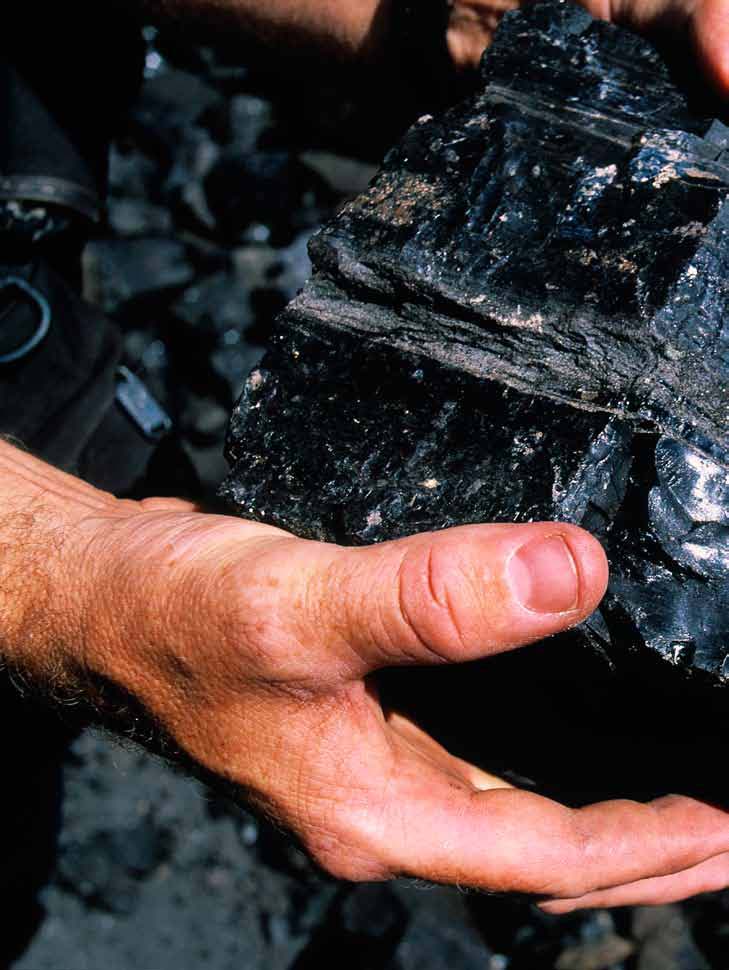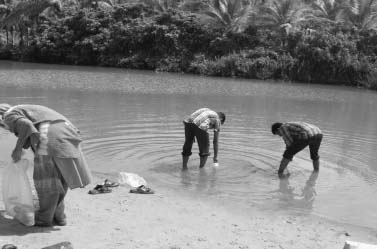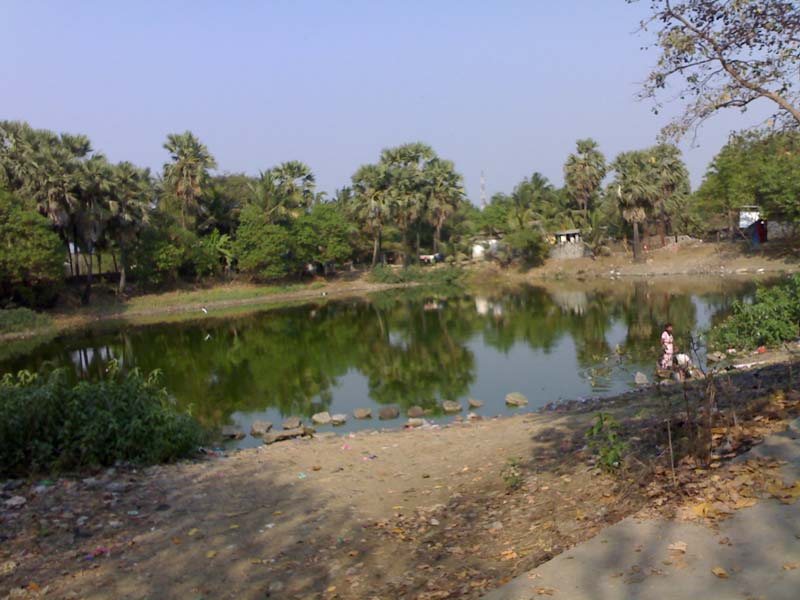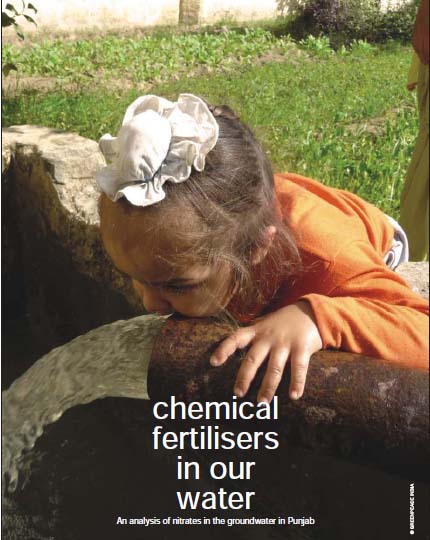/topics/contamination-pollution-and-quality
Contamination, Pollution and Quality
Mining India: Sustainably for growth – A report by Ernst & Young and ASSOCHAM
Posted on 20 Nov, 2011 09:36 AM It deals with issues around capital raising, policy framework, efficiency and sustainability and provides a way forward for strategic acceleration of the benefits.
It deals with issues around capital raising, policy framework, efficiency and sustainability and provides a way forward for strategic acceleration of the benefits.
Status of water quality in India – reports by Central Pollution Control Board for 2007, 2008 and 2009
Posted on 14 Nov, 2011 04:42 PMInternational workshop on mitigating effects of geogenic contaminants, NEERI, January 17-20, 2012, Nagpur
Posted on 14 Nov, 2011 09:12 AMOrganizer: National Environmental Engineering Research Institute (NEERI),
WHO Collaborating Centre for Water and Sanitation
Venue: National Environmental Engineering Research Institute (CSIR-NEERI), Nehru Marg, Nagpur – 440 020


National Environmental Engineering Research Institute (NEERI), Nagpur is devoted to research and innovations in environmental science and engineering besides solving a range of problems posed by industry, government and public. It is a constituent of Council of Scientific & Industrial Research (CSIR).
Water quality hot-spots in rivers of India – A report by Central Water Commission
Posted on 08 Nov, 2011 01:03 PM It evolves a methodology for identifying hot spots in Indian rivers. The water quality data is based on the average values observed during the last ten years (2001-2011) at 371 monitoring stations of CWC on almost all major, medium and minor rivers in India. In respect of Dissolved Oxygen and Biochemical Oxygen Demand, the Central Pollution Control Board's classification has been considered for evaluating the hot spot in the rivers.
It evolves a methodology for identifying hot spots in Indian rivers. The water quality data is based on the average values observed during the last ten years (2001-2011) at 371 monitoring stations of CWC on almost all major, medium and minor rivers in India. In respect of Dissolved Oxygen and Biochemical Oxygen Demand, the Central Pollution Control Board's classification has been considered for evaluating the hot spot in the rivers.
The physical and chemical quality of river water is important in deciding its suitability for drinking purposes. As such the suitability of river water for potable uses with regard to its chemical quality has to be deciphered and defined on the basis of the some vital characteristics of the water. Bureau of Indian Standards (BIS) vide its document IS: 10500:1991, edition 2.2 (2003‐09) has recommended the quality standards for drinking water and these have been used for finding the suitability of river water. On this basis of classification, the natural river water of India has been categorized as desirable, permissible and unfit for human consumption.
Efficacy, effectiveness and acceptability of closed containers, Moringa oleifera and in-home chlorination - A paper from AJTMH
Posted on 04 Nov, 2011 12:38 PMThis study published in the journal The American Journal of Tropical Medicine and Hygiene (AJTMH) aimed at assessing water contamination and the relative effectiveness of three options for point-of-use water treatment in South India.
Environmental monitoring programme on water quality in Kerala – A report by KSCSTE and CWRDM
Posted on 03 Nov, 2011 08:54 PM This report by the Kerala State Council for Science, Technology and Environment (KSCSTE) and Centre for Water Resources Development and Management (CWRDM) on water quality monitoring in Kerala covers all its forty four river basins. This is being done under the “Environmental Monitoring Programme on Water Quality” under which samples are being collected both from surface and groundwater sources.
This report by the Kerala State Council for Science, Technology and Environment (KSCSTE) and Centre for Water Resources Development and Management (CWRDM) on water quality monitoring in Kerala covers all its forty four river basins. This is being done under the “Environmental Monitoring Programme on Water Quality” under which samples are being collected both from surface and groundwater sources.
Groundwater sampling stations were fixed after conducting a sanitary survey in the panchayats. Water Quality Information System is being developed using Geographical Information Systems (GIS) to manage the water quality from point or non-point source of pollution.
In the first phase of the project, three river basins of Kerala viz. Kabbini, Periyar and Neyyar were monitored. The network was later expanded to basins such as Chaliyar, Kadalundi, Meenachil, Karamana, Anjarakandi, Pamba, Muvattupuzha, Bharatapuzha, and Chalakudy.
Lakes in Mumbai – A draft report by WWF India
Posted on 01 Nov, 2011 08:59 PM This draft report on the study of lakes by the World Wildlife Fund for Nature (India) documents the physical condition of the lakes in Mumbai. Apart from the three lakes - Tulsi, Powai and Vihar that used to provide water to Mumbai residents, there are many lakes in the Bombay Municipal Corporation jurisdiction that are either polluted by human sewage or industrial effluents and have remained neglected with increasing urbanization.
This draft report on the study of lakes by the World Wildlife Fund for Nature (India) documents the physical condition of the lakes in Mumbai. Apart from the three lakes - Tulsi, Powai and Vihar that used to provide water to Mumbai residents, there are many lakes in the Bombay Municipal Corporation jurisdiction that are either polluted by human sewage or industrial effluents and have remained neglected with increasing urbanization.
There is very little to no data available on the existence of lakes of Mumbai. Several RTI’s to the government bodies also revealed that there was a lacuna in terms of the availability of the data; as a result most of the water bodies are easily exploited. Under this study the baseline data was prepared with the help of Google Earth website. The areas appearing to be lakes were marked on the Google Earth Images. These were verified by the field staff through onsite visits. The survey was conducted during September and October, 2008 and March, 2009. The study considers only the fresh water lakes which were accessible and saline water impoundments have not been considered.
Equity and inclusion in sanitation and hygiene in South Asia - A regional synthesis paper - WSSCC, UNICEF and WaterAid
Posted on 31 Oct, 2011 03:31 PMThis working paper by the Water Supply and Sanitation Collaborative Council (WSSCC), UNICEF and WaterAid highlights the fact that a staggering 716 million men, women and children defecate in the open every day, in South Asia, contributing to the most appalling concentration of poverty and disease and the poorest standards of hygiene in the world.
Chemical fertilizers in our water - An analysis of nitrates in the groundwater in Punjab by Greenpeace
Posted on 31 Oct, 2011 09:00 AM The level of nitrate in drinking water was tested from groundwater artesian wells located within farms and surrounded by crops (mostly rice and wheat rotations).
The level of nitrate in drinking water was tested from groundwater artesian wells located within farms and surrounded by crops (mostly rice and wheat rotations).
Nitrate pollution in groundwater is associated with nitrogen loads in the environment. In urban areas, it is associated with sewage and in agriculture areas, with livestock sources and nitrogen fertiliser inputs. Nitrate pollution in drinking water can have serious health impact on humans, especially for babies and children. The most significant potential health effects of drinking water contaminated with nitrate are the blue-baby syndrome (methemoglobinemia) and cancer.
Alternative national water policy - A critique - Economic and Political Weekly
Posted on 30 Oct, 2011 04:04 PMThis article published in the discussion section of the Economic and Political Weekly is a critique of the National Water Policy: An alternative draft for consideration, proposed by Ramaswamy Iyer, published in the Economic and Political Weekly, June 25th 2011.





